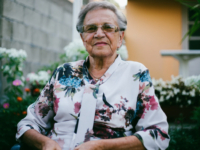November is Alzheimer’s Disease Awareness Month. Alzheimer’s, which is a form of dementia, affects about 5.5 million Americans, according to the National Institute on Aging. Most of those who have it are age 65 or older, and about two-thirds of them are women. In fact, women in their 60s are twice as likely to develop Alzheimer’s disease compared with breast cancer, according to the Alzheimer’s Association. Why is it that Alzheimer’s disease affects more women than men?
The reasons aren’t entirely clear yet. However, researchers think there are a few possible reasons:
- Women live longer than men overall, and that causes them to reach the ages where there is a greater risk for Alzheimer’s disease.
- Women may have some unique biological factors that contribute to brain changes, progression, and symptom manifestation in Alzheimer’s disease, the Alzheimer’s Association reports.
- There may be a connection between women and hormones or lifestyle factors such as sleep patterns, stress, and depression. For instance, recent studies show that hormone changes during menopause, such as a loss of estrogen, may raise the risk for Alzheimer’s.
- There could be genetic related causes that link women to their higher risk for Alzheimer’s disease.
Alzheimer’s disease affects women in yet another less considered way—women are much more likely to be caregivers for loved ones affected by Alzheimer’s disease. Of course, that doesn’t increase their risk of developing the disease, but it sure does contribute to stress and responsibility associated with it.
Alzheimer’s disease has no cure, although scientists are researching potential treatments. What can women do to lower their chances of developing Alzheimer’s disease? Here are a few recommendations:
1. Stay active. You’ve likely heard about the many benefits of physical activity. Federal guidelines currently recommend 150 minutes of heart-pumping cardio exercise each week. That breaks down to 30 minutes, five times a week. However, if you’re new to exercise, even starting with 10-minute walks can make a difference. Talk to your doctor if you’re new to exercise and need more guidance to reap the many benefits from regular physical activity.
2. Watch what you eat. Aim for a diet that’s richer in vegetables and fruits (especially berries and dark green vegetables), fatty fish, lean meat, and whole grains. Do your best to limit your intake of sugar, alcohol, and processed foods.
3. Keep your blood pressure under control. Normal blood pressure is 120/80. If you regularly struggle with high blood pressure, talk to your health provider about ways to control it through better diet, exercise, and medications.
One final tip: If you are caring for a loved one with Alzheimer’s disease, make sure to take good care of your own mental (and physical) health. The article here from HelpGuide.org has some good suggestions for Alzheimer’s caregivers.
Call Secure Aging to Find Out How We Can Help Seniors With Care Management
At Secure Aging in Bradenton, we transform the weight of the world into a sigh of relief for our senior clients and their concerned family members. The mission of Secure Aging is to protect and preserve our client’s independence and dignity through careful and thoughtful financial and care management. As our clients’ age, it is their desire to remain independent and age with dignity. Our services protect our clients from talented con artists looking to exploit and deplete the financial resources of our vulnerable seniors. Secure Aging helps families in Manatee County and Sarasota County and in and around the communities of Anna Maria, Bradenton, Bradenton Beach, Ellenton, Holmes Beach, Lakewood Ranch, Longboat Key, Myakka City, Palmetto, Parrish, and Sarasota. Call us at 941-761-9338, or visit us online at www.secureaging.com.




Comments are closed